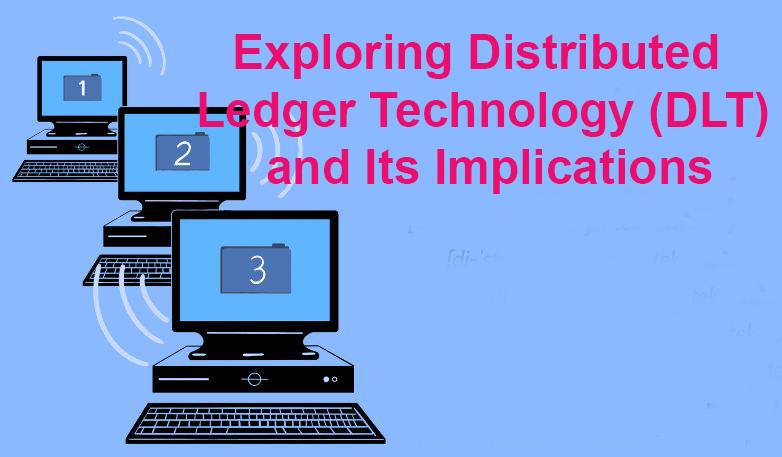Exploring the Transformative Potential of Smart Contracts | This focuses on the concept of smart contracts, their key features, potential applications, and the impact they are poised to have on various industries.
Transformative Potential of Smart Contracts
Smart contracts represent a revolutionary advancement in blockchain technology, offering automated, self-executing contracts that facilitate secure and transparent transactions without the need for intermediaries.
Understanding Smart Contracts
Smart contracts are self-executing contracts with the terms of the agreement directly written into code. These contracts are stored and executed on a blockchain network, ensuring transparency, security, and immutability.
Unlike traditional contracts, which rely on intermediaries such as lawyers or notaries to enforce the terms, smart contracts automatically execute predefined actions when certain conditions are met, eliminating the need for intermediaries and reducing the risk of fraud or manipulation.
Key Features of Smart Contracts
Several key features distinguish smart contracts from traditional contracts:
Automation:
Smart contracts automate the execution of contractual agreements, eliminating the need for manual intervention and reducing the potential for errors or disputes.
Transparency:
Smart contracts are stored on a blockchain, where they are publicly accessible and transparent to all parties involved. This transparency enhances trust and accountability by allowing participants to verify the terms and execution of the contract.
Security:
Smart contracts leverage cryptographic techniques to secure transactions and ensure the integrity of the contract code. Once deployed on the blockchain, smart contracts are immutable and tamper-proof, providing a high level of security against unauthorized modifications or tampering.
Efficiency:
Smart contracts streamline the contract execution process by automating repetitive tasks and reducing the time and resources required to complete transactions. This efficiency translates into cost savings and faster transaction times for parties involved
Applications of Smart Contracts
Smart contracts have a wide range of applications across various industries, including:
Finance:
In the financial industry, smart contracts are revolutionizing processes such as lending, insurance, and asset management. Smart contracts can automate loan agreements, trigger insurance payouts based on predefined conditions, and facilitate the trading of financial assets without the need for intermediaries.
Supply Chain Management:
Smart contracts are transforming supply chain management by enabling transparent and traceable transactions between stakeholders. Smart contracts can automate procurement, track the movement of goods, and enforce compliance with contractual agreements throughout the supply chain.
Real Estate:
In the real estate industry, smart contracts are streamlining property transactions by automating tasks such as property transfers, rental agreements, and escrow services. Smart contracts can reduce the time and cost associated with real estate transactions while providing greater transparency and security.
Healthcare:
Smart contracts have the potential to revolutionize healthcare by securely storing and sharing patient data, automating insurance claims processing, and facilitating the execution of healthcare agreements such as patient consent forms and medical billing.
Legal:
In the legal industry, smart contracts are automating various legal processes, including contract drafting, execution, and enforcement. Smart contracts can streamline the creation of legal agreements, automate the execution of contractual obligations, and provide an immutable record of contract performance.
Challenges and Considerations
Despite their numerous benefits, smart contracts also present challenges and considerations, including:
Security Vulnerabilities:
Smart contracts are susceptible to security vulnerabilities, including coding errors, bugs, and exploits. These vulnerabilities can result in financial losses or unexpected behavior in smart contract execution.
Legal and Regulatory Compliance:
The legal and regulatory framework surrounding smart contracts is still evolving, posing challenges for their widespread adoption and integration into existing legal systems.
Scalability:
Scalability remains a challenge for smart contracts, particularly in public blockchain networks where transaction throughput is limited.
Privacy Concerns:
Smart contracts are stored on a public blockchain, where they are visible to all participants. This lack of privacy may pose concerns for sensitive or confidential transactions.
Conclusion
Smart contracts represent a paradigm shift in contract execution, offering automated, self-executing agreements that streamline transactions and reduce the need for intermediaries.
With their transparency, security, and efficiency, smart contracts have the potential to revolutionize numerous industries, from finance and supply chain management to real estate and healthcare.
However, challenges such as security vulnerabilities, legal and regulatory compliance, and scalability must be addressed for smart contracts to realize their full potential. As the technology continues to evolve and mature, organizations and policymakers must collaborate to harness the transformative power of smart contracts while mitigating their risks.
Addressing Scalability in Blockchain: Exploring Solutions and Implications



